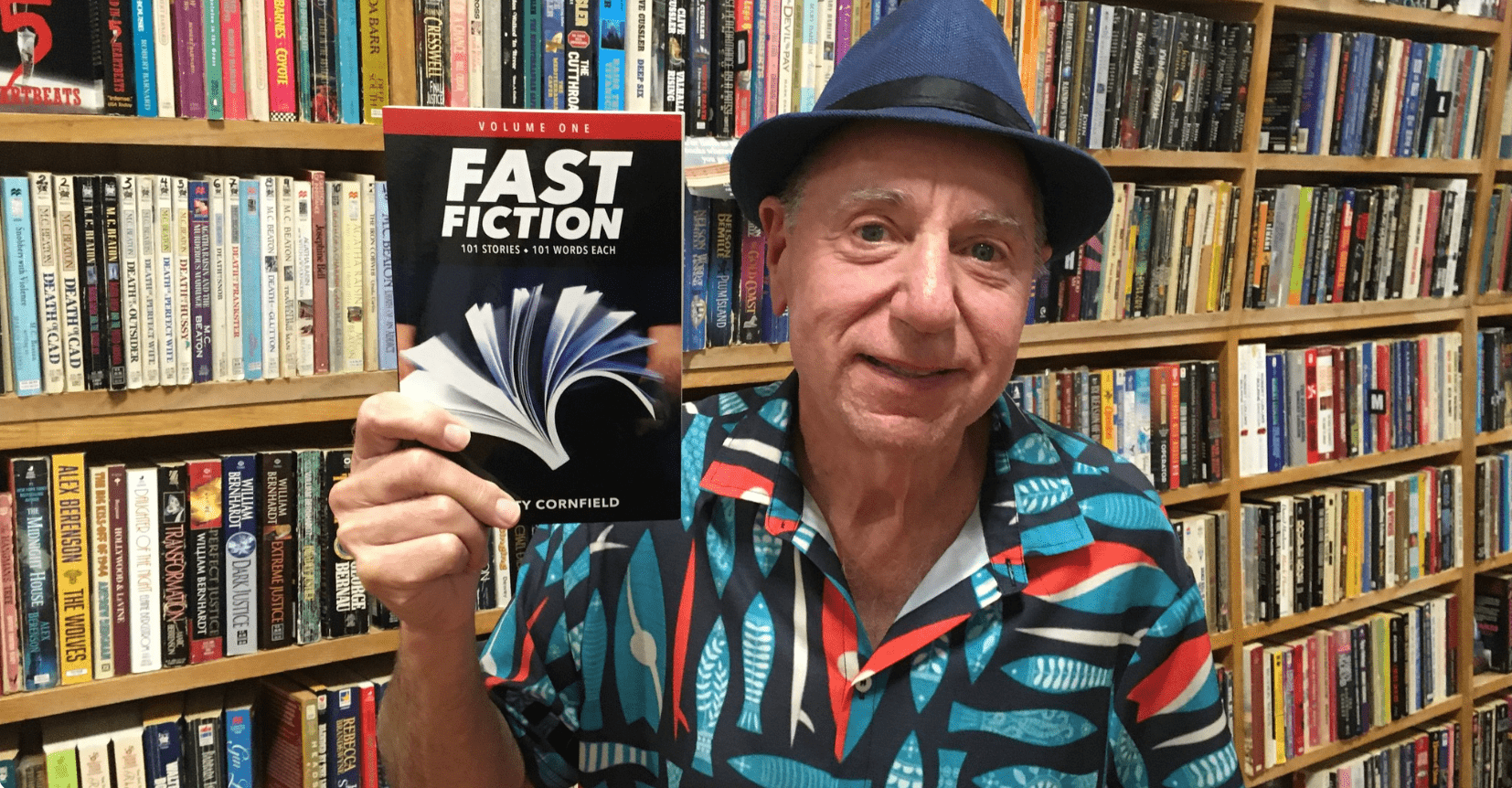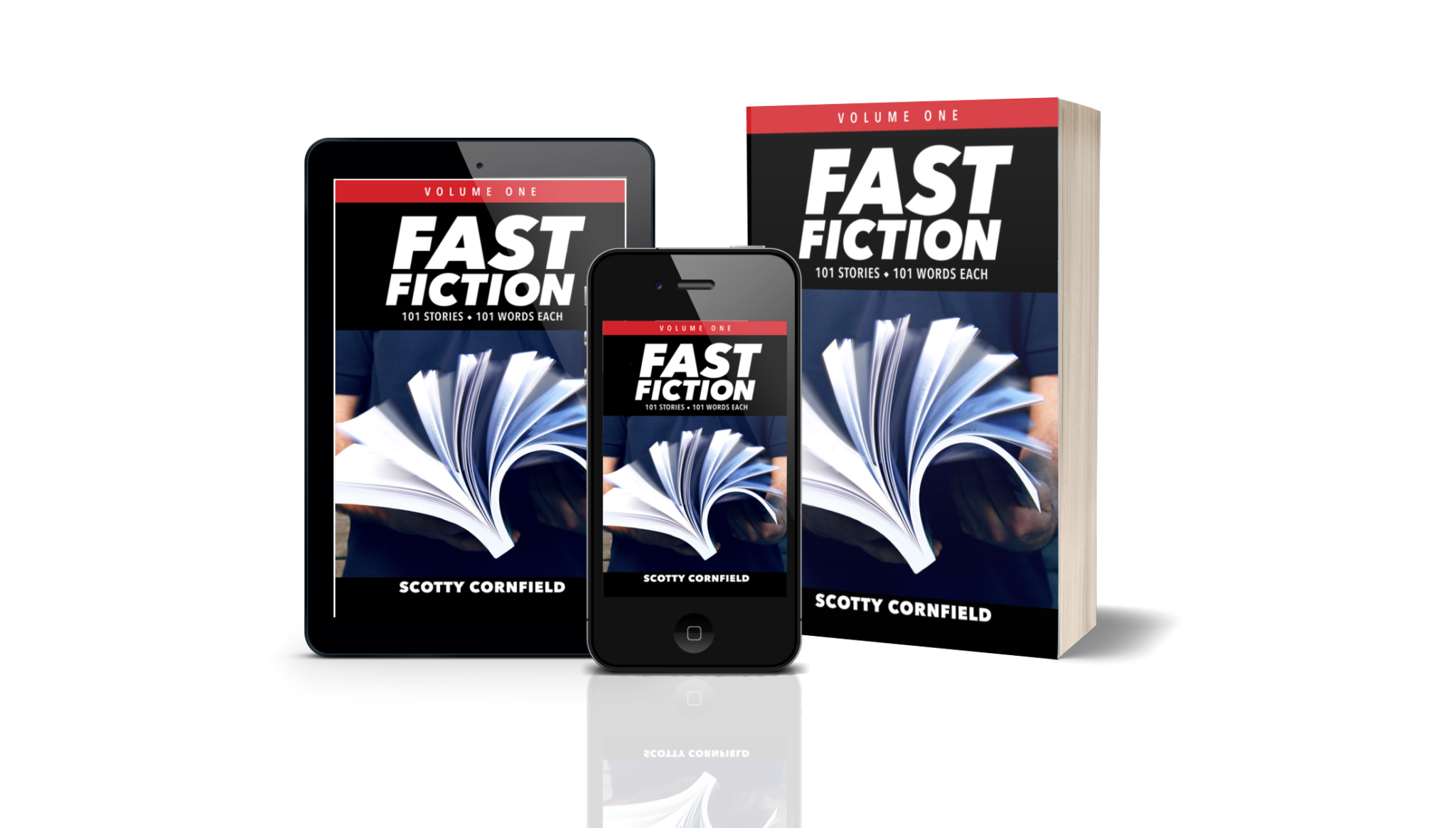We recently connected with Scotty Cornfield and have shared our conversation below.
Scotty, appreciate you joining us today. Going back to the beginning – how did you come up with the idea in the first place?
Although I’m currently working on my first novel (based on my days working homicide and deep undercover assignments), my first two books were collections of what we writers call “Flash Fiction,” stories that can be read very quickly. There is no universal rule for a maximum word count. Some say anything under 1,000 words constitutes flash fiction. Others put the cap at 500 words. In my case, each story is exactly 101 words. As I frequently tell people, “Even if it’s the worst story you’ve ever read, it’s still over in about thirty seconds–45 if you’re a slow reader.”
The secret sauce for my stories is that each one is based on a prompt given me by friends, family, readers of my work, etc. I can honestly say that none of the over 600 stories I’ve written have ever started out with a pre-conceived idea. Each one began with a prompt from my inventory.
Since I’ve spent a lot of time as an improv performer, I like to think of these stories as a written form of improv, because it utilizes the best part of improv–the idea generation that comes from a suggestion provided by someone else. Sometimes the prompts are utilized in a very literal way, but often, I use the prompt for the initial inspiration–the starting point. From there, I may leapfrog from the initial idea to the next one and on to the next one. I always start out with idea A, but that often leads to B, which leads to C, which leads to D, etc. By the time I settle on my story idea, it might be very far from the initial prompt, but I don’t sweat it because without that prompt, I never would’ve wound up wherever I did. To me, that’s the beauty of improv.

Awesome – so before we get into the rest of our questions, can you briefly introduce yourself to our readers.
Although I paid the bills (well, most of them anyway), from a law enforcement career, I’ve always been a story teller. I fell in love with journalism in high school and saw my future in newspaper writing. I wrote for a small weekly newspaper and then a bigger daily paper. There was some freelance magazine writing sprinkled in the mix.
After a fateful day where my editor talked me out of a journalism degree, I switched over to law enforcement, thinking I would be a crime writer. Unfortunately for my editor, I found law enforcement fascinating, and believed it would offer a lot more challenges than that being offered by my assignment writing high school sports stories. Thus began my foray into law enforcement, but since I never lost my passion for writing and being creative, I continued to tell stories on the side. I eventually created a local TV show for some cable systems, and that spun off into starting my own production company (all the while still doing my “day job” in law enforcement).
After writing a lot of dry scripts for mostly Silicon Valley corporate clients, I somehow found my way into screenwriting classes, which led to writing spec scripts for movies and television, and ultimately producing my own short films, documentaries, and one feature.
When I moved away from San Francisco and my movie-making tribe, a little thing called the pandemic caused me to pivot to a different type of writing–fiction, which is how I spend most of my time now (with just a dash of film making thrown in).
What’s the most rewarding aspect of being a creative in your experience?
For me it’s all about the thrill of the creative process. With my flash fiction, it’s about solving the puzzle of what to do with the prompt staring at me on the computer screen. Well, that’s not exactly the way it works because my typical process begins when I break out the phone, open up my list of prompts, and find one that’s calling to me. This occurs early in the morning, usually between 5-6 a.m. when I’m out walking Scooter, my pandemic puppy. I fire up the voice recorder app on my phone and start brainstorming ideas on different ways to attack the prompt.
Scooter occasionally stops, looks up at me just shakes his head. “Sorry, Dad, but that idea sucks.” He’s almost always right, but that’s all part of the creative process–throwing it all out there and letting the mind play with a variety of possible ways to go. When I was working on a master’s thesis in creativity, I read a lot about the brainstorming process. One of the cardinal rules when brainstorming with others is “No Judgment.” You don’t criticize ideas or do anything t stymie the process. I definitely agree with that, but the rule changes when it’s just me doing the brainstorming. I’ll spit out an idea and almost before it’s been converted into ones and zeros on my iPhone, I’ll say something like, “That’s a really dumb idea,” and I’ll move on to the next one. Fortunately, the next one is ALWAYS better. That doesn’t mean it’s a winner–just that it’s at least slightly less dumb that the previous one. This whole creative journey is what I enjoy, and the ultimate reward is when it all works, resulting in a product I created out of the initial word or phrase a generous soul sent my way.
In the larger world of novel writing, the path is slightly different, but that same discovery process takes place, and while the results might not be as quick to appear, the thrill is much the same.

What’s a lesson you had to unlearn and what’s the backstory?
Here’s one I learned during the world of making movies. My co-writer and I worked on a script for a couple of years. The star was a detective who had prior military experience. The whole time we were writing this and talking about it, we had developed a very specific look for this character. He was a very old-school detective, and we saw him as still wearing a high and tight military haircut even though he’d been out of the military for several years.
When it came to casting the movie, during auditions, we came across an actor who looked nothing like the image of our protagonist. Based on initial impressions, we “knew” this guy could never be cast as our detective. Instead of a crewcut (or even being willing to cut his hair for the part), this guy was bald, but his acting ability was obvious right from the start. We huddled up away from him and talked about how it might work casting someone very different from what we imagined. Then I had the epiphany that would stay with me from that day forward. As long as the actor could pull off the role and convince the audience that he was the detective the story was about, it would all work just fine. The audience never knew what we thought he looked like. They had nothing to compare him to. Movie-goers and readers only know what we show or tell them so sometimes it’s worth tossing out whatever idea you had if something else presents itself that can be just as good–or better.
Contact Info:
- Website: https://www.scottycornfield.com
- Other: I put out most of my content via my bi-weekly blog (or is it bi-monthly?) I never know which is which. In fact, one of my 101-word stories is all about that mysterious label. People interested in signing up for my blog–whenever it comes out twice a month, can go to my website and sign up to get my stories and other writing adventures.


